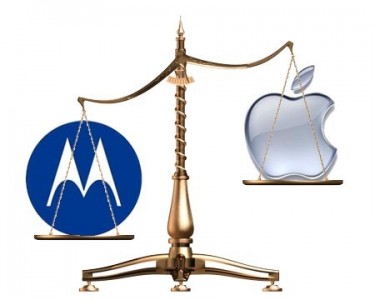It's been exactly a week since Apple was forced to remove certain iDevices from sale and today a court in Mannheim, Germany, finally gave a favorable decision Apple in a lawsuit against Motorola. In today's trial, the Motorola company stated that Apple would have infringed a patent related to the 3G/UMTS technology, but the court considered that Motorola did not provide sufficient arguments to support its case. Motorola claims that Apple has violated a patent for a technology which allows the generation of a number that through certain "means" improves wireless data transmissions, but unfortunately the Motorola company did not present sufficient evidence that Apple infringed the patent either through a software or a hardware implementation of these "means".
Apple's Mannheim jinx has been broken: this morning, Judge Andreas Voss of the Mannheim Regional Court announced that a Motorola Mobility lawsuit over a patent declared essential to the 3G/UMTS wireless telecommunications standard has been dismissed. The judge explained that the court does not hold Apple to infringe claim 9 of EP1053613 on a "method and system for generating a complex pseudonoise sequence for processing a code division multiple access [CDMA] signal". In the court's opinion, MMI failed to present conclusive evidence for its infringement contention. MMI argued that any implementation of 3G/UMTS must inevitably infringe this patent claim, as opposed to demonstrating that the accused Apple products actually practice the claimed invention.
The judge who presided over the hearing claims that he would have given Motorola a victory if he had managed to prove his claims, but in the absence of such evidence, Apple emerges victorious. Motorola has not yet filed an appeal against this decision, but there are very high chances that this will happen in the following days. Today's defeat is too little important for the Motorola company that still has enough patents with which it can attack Apple in the German courts.
Since the asserted patent claim is centered around the "means" used to generate a number that optimizes wireless transmissions, the court would have wanted to see proof that Apple's products contain such "means". The judge clarified that the court would have deemed the patent claim infringed even if the "means" had been program code as opposed to a hardware implementation — but MMI didn't show any kind of actual implementation (neither hardware nor software), and arguing merely on the basis of the specifications of the standard was insufficient to win.

















